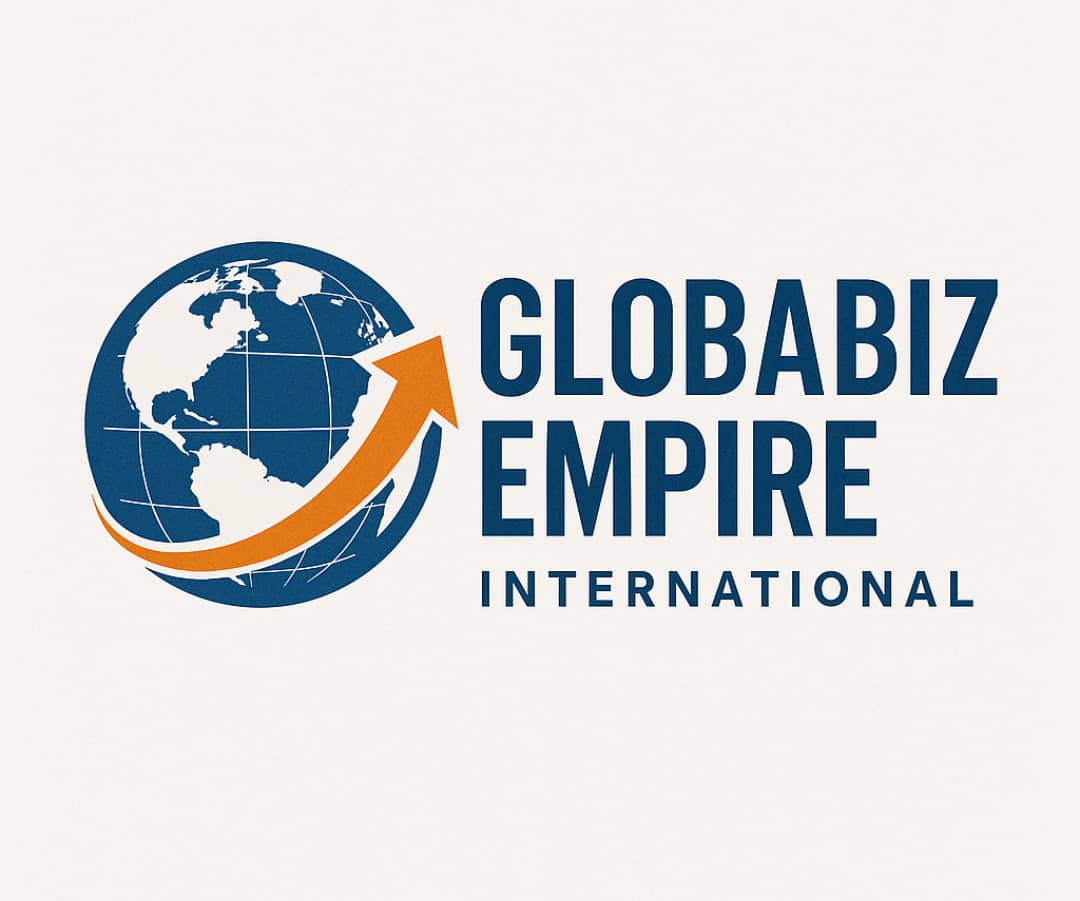business
Travel on a Budget: 10 Most Affordable Countries to Explore in 2025 (#8 Will Shock You)
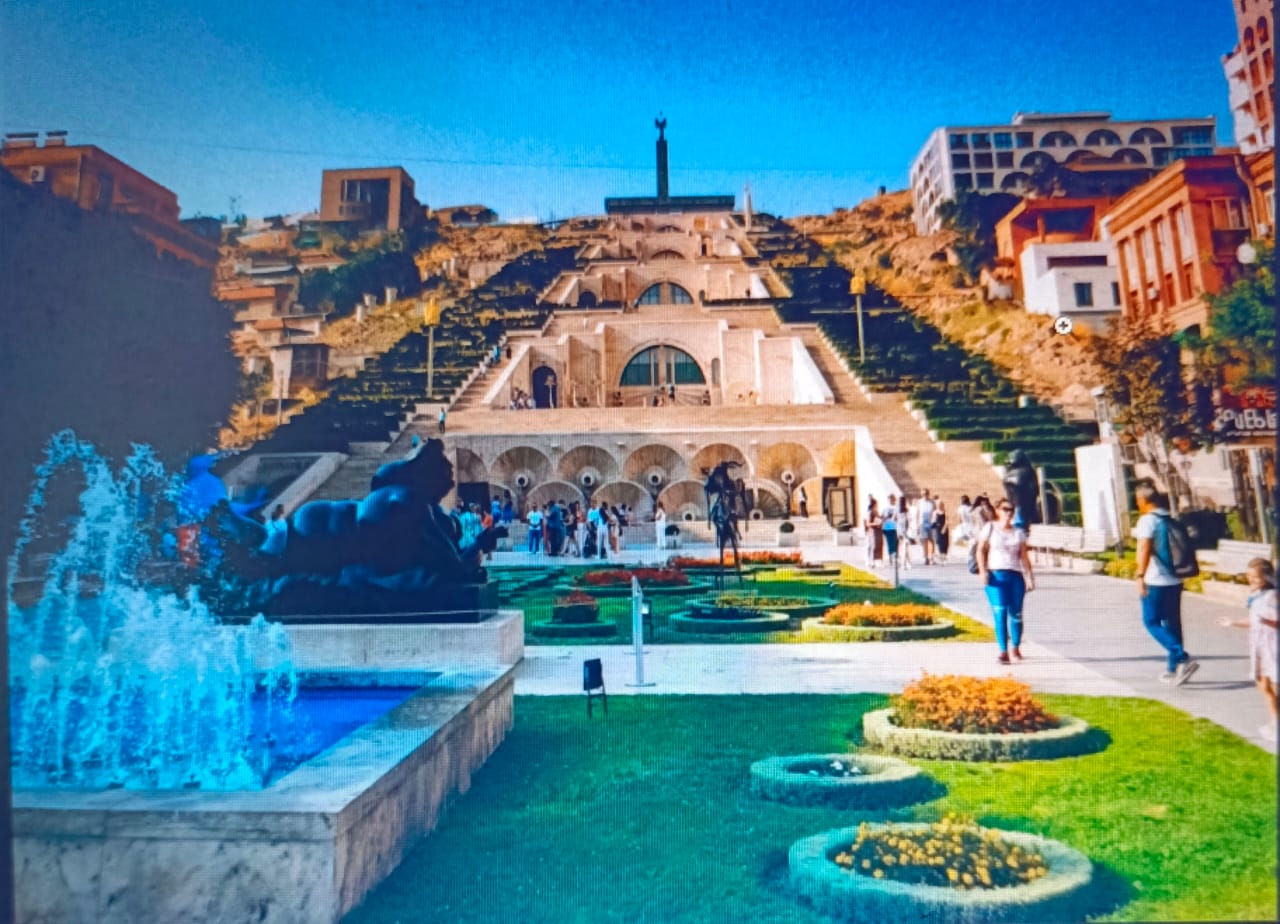
Top 10 Cheapest Countries to Visit in 2025 — No. 8 Will Surprise You
In 2025, true travel luxury isn’t about five-star hotels or private jets—it’s about the freedom from financial stress. It’s the ability to say “yes” to unexpected detours, immerse yourself in local culture, and indulge in that extra serving of street food you didn’t plan for, but definitely deserved.
While inflation continues to stretch wallets globally, these ten destinations remain budget havens—offering stunning experiences, rich traditions, and unbeatable value.
Welcome to budget travel in 2025, where the thrill of adventure is matched by the joy of saving.
Budget Travel Methodology
The daily budgets listed reflect the average expenses for a cost-conscious traveler, including:
-
Basic yet comfortable accommodations (guesthouses, hostels, or budget hotels)
-
Three meals per day (local eateries and street food)
-
Public transportation
-
Entry fees to key attractions
Note: International airfare is not included.
The 10 Most Affordable Countries to Visit in 2025
1. Laos – $15/day
Top Experience: Luang Prabang’s serene temples and street markets
Laos tops our list with its postcard-worthy landscapes and spiritual charm. In places like Luang Prabang, you’ll find guesthouses for $5–$7 per night and bowls of delicious khao soi for just $1.50. Its rural economy and developing tourism keep costs incredibly low.
2. Kazakhstan – $19/day
Top Experience: Almaty’s mountains, Soviet history, and hearty cuisine
From alpine adventures to modern cities, Kazakhstan offers stunning diversity. Budget stays in Almaty start around $8, while meals cost just $2–$4. The country remains underexplored, with low travel prices and an excellent transport system.
3. Rwanda – $21/day
Top Experience: Kigali’s clean streets and rolling green hills
Often dubbed “Africa’s cleanest country,” Rwanda offers both beauty and budget. With $10 rooms, $2 meals, and low-cost transit, you’ll enjoy mountain vistas and rich culture without the price tag. The nation’s focus on sanitation and safety also boosts its travel appeal.
4. Ghana – $22/day
Top Experience: Vibrant street life and historical slave forts
Ghana is West Africa’s most stable and welcoming destination. Street food like waakye or kelewele costs just $1–$3. With affordable minibuses (tro-tros) and beach stays, it’s an excellent pick for cultural immersion and historical exploration.
5. Mongolia – $24/day
Top Experience: Horseback riding across vast, untouched steppes
The land of Genghis Khan is perfect for nature lovers and nomadic souls. Hostels start around $8, while dishes like buuz and khorkhog fill you up for $3–$5. Summer is ideal; brave winter travelers may enjoy even deeper discounts.
6. Armenia – $26/day
Top Experience: Ancient monasteries and delicious Caucasus cuisine
Armenia offers a European feel at Asian prices. In Yerevan, stays begin at $10, and flavorful meals cost $4–$7. Armenia’s small size and improving infrastructure make travel easy and affordable.
7. Burkina Faso – $26/day
Top Experience: Traditional mud mosques and colorful markets
Off the beaten path, Burkina Faso is a cultural gem. Local food costs $2–$4, and transportation is ultra-cheap. While some planning is required due to limited tourism infrastructure, the experience is authentic and rewarding.
8. Georgia – $28/day
Top Experience: Wine regions, ancient fortresses, and Tbilisi’s charm
Yes, Georgia makes the list—and it may surprise you. With its European vibe, world-class wine, and low prices, Georgia is a traveler’s dream. Hostels go for $10–$15, and hearty meals like khachapuri and khinkali cost just $5–$8.
9. Mali – $29/day
Top Experience: Musical heritage and Niger River life
Despite security concerns in some regions, Mali offers rich cultural experiences. Basic lodging in Bamako starts at $10, with flavorful local dishes available for $3–$5. Destinations like Timbuktu and Ségou offer deep history on a shoestring budget.
10. Myanmar (Burma) – $34/day
Top Experience: Sunrise over the temples of Bagan
While still recovering from political instability, Myanmar remains one of Southeast Asia’s best values. Rooms in Yangon start at $15–$20, with classic meals like mohinga available for just a few dollars. Tourists benefit from low costs in a country with rich heritage and quiet temples.
Final Thoughts
These destinations prove that adventure doesn’t need a platinum card. From Southeast Asia to the Caucasus and West Africa, 2025 is the year to travel smart and travel far.
Let your wallet rest while your spirit roams.
business
Discover Life-Changing Digital Products You Can Buy on Selar Today
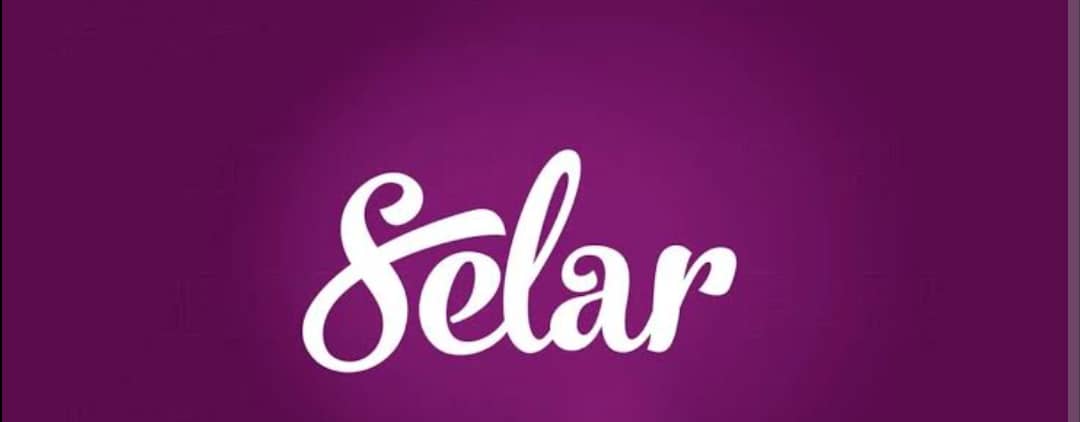
In today’s fast-paced world, knowledge truly is power. The people who thrive are those who continuously invest in themselves. Whether you want to learn a new skill, start a side hustle, improve your finances, or build a healthier lifestyle, the right digital product can open doors to opportunities you never imagined.
That’s why millions of smart people across Africa and beyond are choosing Selar—one of the largest digital product marketplaces. From ebooks, online courses, masterclasses, templates, business blueprints, and more, Selar gives you access to tools that can transform your life.
Why You Should Invest in Digital Products
-
Instant Access – No waiting, no shipping delays. Get your product immediately and start applying what you learn today.
-
Affordable Learning – Instead of wasting years figuring things out, you can gain insights directly from experts who have already succeeded.
-
Proven Results – Every product is created by professionals with strategies and methods that have worked for them—and will work for you too.
-
Lifetime Value – Buy once and keep coming back. You can re-learn, refresh, and apply the knowledge whenever you need it.
Who Needs These Digital Products?
These products are designed for:
-
Business owners who want to increase sales, attract more customers, and scale their operations.
-
Students and young professionals looking to master in-demand skills like digital marketing, UI/UX design, forex trading, or freelancing.
-
Entrepreneurs eager to discover profitable side hustle opportunities.
-
Anyone who wants to grow in health, wealth, and personal development.
How to Get Started on Selar
-
Choose a Product – Below is a carefully selected list of high-value digital products that have helped thousands of people.
-
Click the Link – Each product includes a direct link to purchase securely via Selar.
-
Start Learning & Applying – You’ll gain instant access so you can begin your journey right away.
Recommended Digital Products You Can Buy Today
Here are some of the top digital products available now:
-
Digital Marketing Made Simple
Get it on Selar -
Affiliate Marketing Simplified
Get it on Selar -
Rare Easiest Affiliate Marketing Blueprint (REAMB)
Get it on Selar -
The Top Level Video Editing Masterclass
Get it on Selar -
Crypto Profit Kit
Get it on Selar -
Beginners & Advanced Crypto Training
Get it on Selar -
Mini Beginners’ Course on Cryptocurrency Investment
Get it on Selar -
Online IELTS Training Pro Edition (2022–)
Get it on Selar -
Ghostwriting Income Generator
Get it on Selar -
Ghostwriting Income Network
Get it on Selar -
Ghostwriting Money Magnet (GMM)
Get it on Selar -
7-Figure Meta Ads Academy
Get it on Selar -
Simplified Online Survey Guide (Get Paid in Pounds)
Get it on Selar -
Affiliate of Affiliate Marketing Sales Secret (AMSS)
Get it on Selar -
Life of Options Program (LOOP)
Get it on Selar -
Profitable Freelancing Academy
Get it on Selar -
Mobile Videography Course: Create Quality Videos with Your Phone
Get it on Selar -
Trade Like TonySnip3r
Get it on Selar
Final Thoughts
Investing in the right digital products can change your life, career, and finances. Instead of spending years figuring things out on your own, you can leverage the wisdom of experts and start seeing results faster.
Don’t wait—take action today. Each product listed above is designed to equip you with skills, knowledge, and opportunities that will continue to pay off for years to come.
business
Discover Life-Changing Digital Products You Can Buy Today on Selar

In today’s world, knowledge is power—and the people who succeed are those who invest in themselves. Whether it’s learning a new skill, starting a side hustle, improving your finances, or building a healthier lifestyle, the right digital product can open doors to opportunities you never imagined.
That’s why millions of smart people across Africa and beyond are turning to Selar, one of the biggest marketplaces for digital products—from ebooks, online courses, masterclasses, templates, to business blueprints and more.
Why You Need These Digital Products
- Instant Access – No waiting, no shipping. Buy now and start learning or applying immediately.
- Affordable Investment – Instead of spending years figuring things out, you can learn from experts who’ve already succeeded.
- Proven Results – These products are created by professionals who have tested strategies and methods that actually work.
- Lifetime Value – Once you purchase, you can always come back, re-learn, and apply the knowledge again and again.
Who Can Benefit from These Products?
- Business owners who want to grow sales, attract more customers, and scale faster.
- Students and young professionals looking to learn in-demand skills like digital marketing, UI/UX, forex, or freelancing.
- Entrepreneurs searching for side hustle opportunities to increase income.
- Anyone who wants to improve in health, wealth, and personal development.
How to Get Started
- Choose a Product Below – I have carefully selected high-value digital products that have helped thousands of people.
- Click the Link – Each product has a direct link to purchase securely through Selar.
- Start Learning & Applying – You’ll receive instant access so you can begin right away.
Recommended Digital Products You Should Buy Today
(This is where you will list your affiliate product links with a short description for each, for example:)
- Digital Marketing made Simple
https://selar.com/p/19b4zi?affiliate=8fpr
- Affiliate Marketing Simplified
https://selar.com/p/323311?affiliate=emzc
- Rare Easiest Affiliate Marketing Blueprint (REAMB)
https://selar.com/p/1482w7?affiliate=n3bz
- The Top Level Video Editing Masterclass
https://selar.com/p/8yi8?affiliate=9agp
- Crypto Profit Kit
https://selar.com/p/ejtf?affiliate=kjn7
- Beginners and Advanced Crypto
http://Womenincrypto.selar.com/oqgd?affiliate=9cjc
- Mini Beginners Course to Invest in Crypto Currency
https://selar.com/p/jsn1?affiliate=8lyn
- Online IELTS Training PRO Edition (2022-)
https://selar.com/p/9v47?affiliate=rodi
- Ghostwriting Income Generator
http://dangig.selar.com/qelh?affiliate=gxd5
- Ghostwriting Income Network
http://coachannieg.selar.com/1m51b8468h?affiliate=mivc
- Ghostwriting Money Magnet(GMM)
http://olaleregmm.selar.com/g84813?affiliate=3646
- 7 Figure Meta Ads Academy
https://selar.com/p/6h15b7?affiliate=ccze
- Simplified Online Survey Guide (GET PAY IN POUNDS)
https://selar.com/p/7210p5?affiliate=mwt8
- Affiliate of Affiliate Marketing Sales Secret (AMSS)
http://victornathel.selar.com/k4gk?affiliate=iqxg
- Life Of Options Program (LOOP)
https://selar.com/p/yotn?affiliate=co2u
- Profitable Freelancing Academy
https://selar.com/p/4163r7?affiliate=s8ba
- Mobile Videography Course: Learn How to Create Quality Videos with your Phone
https://selar.com/p/k7xi?affiliate=tpwp
- Trade Like TONYSNIP3R
https://selar.com/p/i02p3k?affiliate=s25x
Final Thoughts
Investing in the right digital products can transform your life, career, and finances. Instead of wasting years trying to figure things out, you can leverage the experience of experts and start seeing results immediately.
Take action today by choosing from the products above. Each one is designed to equip you with skills, knowledge, and opportunities that will pay off for years to come.
business
We are Hiring: Social Media Growth Ambassadors (2 Positions)

Remote | Part-Time or Flexible Hours
Are you active on social media and passionate about business, jobs, and opportunities?
Do you know how to attract attention, spark engagement, and drive traffic online?
Then this opportunity is for you!
Role Overview:
We are looking for 2 dynamic individuals to serve as Social Media Growth Ambassadors for GlobabizEmpire.com — a trusted online platform for global jobs, business insights, and income opportunities.
Key Responsibilities:
-
Promote GlobabizEmpire.com consistently on Facebook, Instagram, WhatsApp, TikTok, or X
-
Share daily job updates, business news, and smart money tips from the website
-
Drive website traffic using content, trends, reels, and referral links
-
Respond to DMs/comments and convert viewers into website visitors
-
Provide weekly reports on reach, impressions, and traffic performance
What You’ll Need:
-
A strong presence on social media (min. 2,500 followers on at least one platform)
-
Great communication skills and social media creativity
-
Consistency and accountability
-
Passion for helping people grow their careers or income
What You’ll Get:
-
Monthly stipend + performance-based bonus
-
Opportunity to grow your personal brand with us
-
Free digital training + content materials
-
Certificate of Digital Advocacy (upon successful campaign)
How to Apply:
Send us a message with:
-
Your full name
-
Link to your active social media profiles
-
Short message on why you are the perfect fit
-
Screenshot of your past engaging post (if available)
Email: [email protected]
WhatsApp: +234 8153507382
Deadline: August 22, 2025
-

 jobs9 months ago
jobs9 months agoEnvironmental Health & Safety (EHS) Specialist – Oando Plc
-

 business7 months ago
business7 months agoSEC Director-General to Headline Comercio Partners’ Forum on Global Trade and Innovation Trends
-
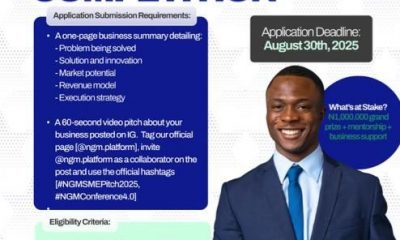
 news7 months ago
news7 months agoPitch to Win ₦1M! Apply Now for SME Competition 4.0
-

 news7 months ago
news7 months agoApply Now: Pivot Challenge 2025 – Up to ₦50 Million Grant & Business Support for Young Nigerian Entrepreneurs
-
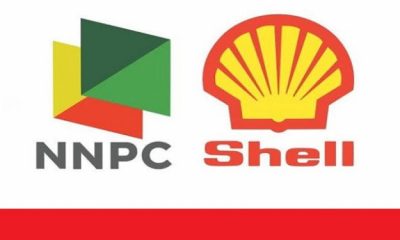
 news7 months ago
news7 months agoApply Now: 2025 NNPC/SNEPCo Scholarship Worth ₦250,000
-

 news7 months ago
news7 months agoApply Now: Grooming Centre ₦20M Grants for Nigerian Undergraduates & Postgraduates
-
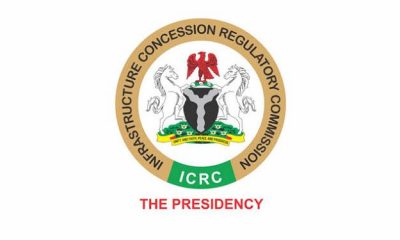
 business8 months ago
business8 months agoFG Approves Policy Allowing Ministries to Approve PPP Projects Under ₦20 Billion
-
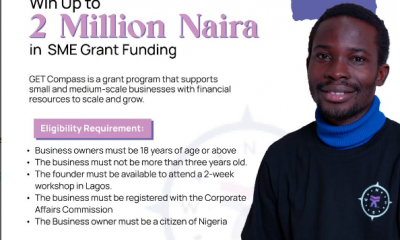
 news7 months ago
news7 months agoApply Now: GET Compass Grant Program – Up to ₦150 Million for Nigerian MSMEs
